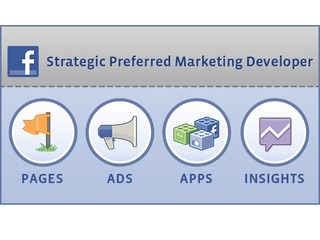
Updated to reflect comment from Facebook.
Remember Facebook gifts? It was back in the early days of the site, when your wall could be edited by anyone and poking still seemed like something you might actually do to someone. They were virtual things that you would send to people, a teddy bear or a heart. It would show up on their wall, and they were supposed to send one back to you. It was a fun idea, but one that eventually lost its novelty after a while and faded away, as these things tend to do. It officially closed in August 2010.
Well, now it’s back, and better than ever.
Facebook announced Thursday that it is reviving the idea, but now, instead of sending your friends virtual things that they can’t actually do anything with, you can send real gifts. You know things you can actually touch and use.
The way it works is that a user decides to buy someone else a gift, so they will go that person’s timeline and click the Gift button at the top. They select a card, add a personal message and then send the gift. The recipient will be notified, and asked for their address. The gift can be paid for immediately, or the sender can choose to wait until the recipient enters their info.
The sender will never see the address of the person he or she is sending the gift to and the person receiving the gift won’t see the price. They can also change the size, color and style of the gift.
Facebook is offering hundreds of gifts, including cupcakes from Magnolia Bakery, a stuffed animal from Gund, a digital gift card from Starbucks, cookies, household goods, tshirts and posters.
The service is being rolled out gradually, first to Facebook users in the United States.
It should not be surprising that Facebook is venturing into the e-commerce business. The company’s first post-IPO purchase was that of gift app Karma, which Facebook used to build Gifts.
The company also recently announced a new mobile Web carrier billing service, powered by electronic payment service Bango.
The payment service is described as “frictionless,” meaning that it does not require users to give their credit card information. Instead, when a users purchases something on Facebook, be it virtual gifts or game credits, it will be charged directly to the user’s phone bill, creating a system for mobile payments that is faster, easier and less intrusive.
Facebook had previously declared that it would be improving its mobile payments flow at Mobile World Congress in February. The company began to roll out the service in June.
It was announced that Bango would initially be providing payment services in Germany, the UK and USA, but that the service will be expanded to other countries by the end of the year. The timing of that announcement makes a lot of sense, given that it was only a week before Facebook unveiled the Gifts feature. (Update: a Facebook spokesperson tells VatorNews that users are only currently allowed to pay for gifts with their credit card and will not be allowed to pay with Web carrier billing.)
Facebook’s other recent moves
Facebook has been in revenue mode lately, and the Gifts feature is just the latest example of the company expanding into new areas to make money.
Earlier this moth, the company confirmed that it would be creating a system where its formerly free Offers program would suddenly cost businesses money if they want to run the offers in user News Feeds.
Only a few days before that it was announced that Facebook would be creating a its own mobile advertising network to increase revenue from advertising. The network would use data it has collected on its users to advertise on third-party apps and websites.
Update:
After announcing its new Gifts program on Friday, Facebook shares ended the day up 6.59%, and are now trading at 21.66.

Facebook shares were down 9% earlier this week, selling at at $20.79, after a scathing Barclay’s report slammed Facebook’s business model and Mark Zuckerberg, and priced the social giant’s shares at $15.
The stock has recovered since then, but has not been able to reach its six week high of $22, which it reached on September 14 after Marck Zuckerberg outlined the company’s mobile strategy.
(Image source: http://newsroom.fb.com)



















